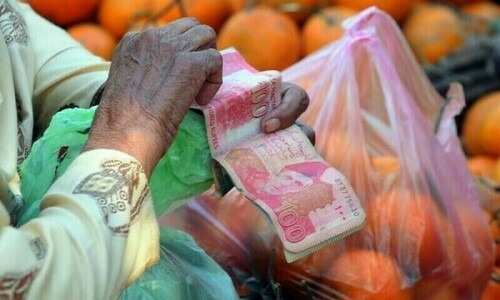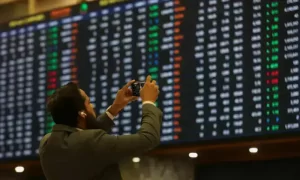
The finance ministry on Monday projected consumer inflation for July to remain in a range of 3.5-4.5 per cent, citing stable prices and improved supply conditions, as price pressures ease further after the previous fiscal year’s sharp decline.
Inflation stood at 3.2pc in June, the ministry said in its monthly economic report, while average inflation for the fiscal year ending June 30 dropped to 4.49pc, a nine-year low, from 23.4pc the year before. The country’s fiscal year begins on July 1.
The ministry said the economy is expected to sustain its recovery in the early months of fiscal year 2026, underpinned by an improved macroeconomic backdrop and growing investor confidence.
Large-scale manufacturing likely maintained momentum in June, supported by rising private sector credit offtake and expanding production activity, the report said. The rebound is expected to lift imports of raw materials and intermediate goods, while aiding value-added exports, it added.
Strengthening domestic demand, a stable exchange rate, and steady global commodity prices were also likely to boost exports, remittances and imports in July, reinforcing external sector stability, the ministry said.
According to the report, the automobile sector exhibited strong performance during Jul-Jun FY2025, supported by substantial increases in the production of cars (40pc), trucks & buses (96.8pc), and sports utility vehicles & pick-ups (74.6pc).
Cement dispatches stood at 46.2 million tonnes during FY2025, marking a 2.1pc increase over the previous year; however, domestic cement sales declined by 3.1pc to 37 million tonnes, while exports rose significantly by 29.5pc to 9.2 million tonnes.
However, it warned that recent heavy rains could pose risks to agricultural output and supply chains, potentially impacting the inflation outlook in the coming months.
Since June 26, rain‑ and flood‑related incidents have killed at least 266 people and injured more than 630 nationwide, according to the National Disaster Management Authority, adding that 1,557 houses had been destroyed.
Last week, the Asian Development Bank (ADB) projected Pakistan’s economy to grow at a steady pace of 3pc in FY26, even as it lowered growth forecasts for the broader Asian region amid global trade uncertainty.





